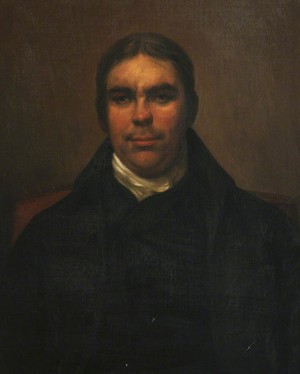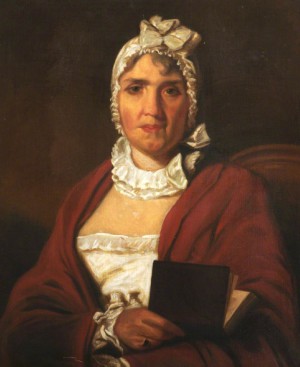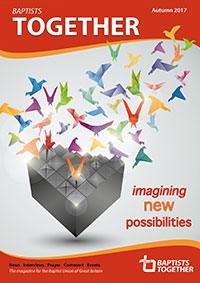Challenge and change and Baptist life
Eighteenth-century Baptists made mistakes, but their story shows how God can work through ordinary people who exhibited an extraordinary commitment to God, writes Peter Morden

Massive economic upheaval. Much political uncertainty. Seismic shifts in culture. Sharp divisions between rich and poor, city and countryside. Huge challenges for the churches.
This could easily be a description of twenty-first century Britain, but it serves equally well when applied to the eighteenth century. The so-called industrial revolution was beginning to transform people’s lives. It caused considerable social dislocation as the population shifted from the countryside to grimy towns and cities that became what one Baptist writer described as places of ‘smoke, burning and terror’. The cultural certainties of previous generations were being challenged by ‘enlightenment’ thinking. Church attendance in many places was plummeting.
Yet by the end of the century Baptist congregations were growing, new churches were being planted, and global mission was being pioneered.
How did this happen?
Biblical theology
There were two streams in English and Welsh Baptist life: ‘Particular’ Baptists and ‘General’ Baptists. By the middle of the eighteenth century both were in serious trouble. The ‘Particulars’, who emphasised God’s sovereignty, were committed to biblical orthodoxy but were often inward looking with little commitment to mission. The ‘Generals’, who stressed human free will, were caving in to the surrounding culture. Many rejected the doctrine of the Trinity, which they thought made no sense in a rational, ‘enlightened’ age.
But as the century wore on Baptists experienced biblical renewal for mission. Among the Particulars, key ministers such as Andrew Fuller (below) became convinced that engagement in mission was a biblical priority. They drew from the Evangelical Revival and the example and writings of non-Baptist missional thinkers such as George Whitefield and Jonathan Edwards, whilst retaining a strong commitment to key Baptist principles.
Amongst the Generals there was no corresponding revival in biblical theology and many churches dwindled away. But in 1770 Dan Taylor founded a new grouping of Evangelical General Baptists, with a strong stress on biblical mission. Radical change was sweeping through Baptist life.

Renewal of Association
Many eighteenth-century Baptist churches were isolated. In the west of England, the Western Association and the Baptist Academy at Bristol showed what could be done through greater cooperation. Others began to see the value of coming together for mutual support and encouragement.
The Northamptonshire Association brought together Andrew Fuller and other Evangelical Baptist ministers, including a young enthusiast for mission, William Carey. Fuller worked with his new friends in church planting. Dan Taylor’s New Connexion – as their name suggests – emphasised the ‘connectedness’ of their churches from the beginning. New networks of missional thinking and practice were being forged.
Prayer
Prayer was a vital springboard to action. Leading figures in the Northamptonshire Association called member churches to establish meetings for prayer ‘for the revival of real religion’. They were to pray not only for their own communities but for other denominations, as well as for global possibilities. Again they were influenced by thinking from outside Baptist life – in this instance a pamphlet written by Jonathan Edwards. This blended biblical reflection and cultural analysis to argue that the need of the hour was a dynamic movement of intercessory prayer. Churches responded, and not only with prayer, but also with action.
Vigorous mission
It is hard to underestimate the change that took place. The New Connection grew vigorously, especially in the north of England. But it was the Particular Baptists who saw the most remarkable growth. In 1718 there were around 220 Particular Baptist churches in England and Wales. By 1752 that number had declined to approximately 150, with many congregations small, isolated and struggling. By 1789 the number had grown to 316 and, by 1798 to 369. Many existing churches developed building projects to cope with increasing numbers of new believers.
A deep missional piety drove ministers and ‘lay people’ alike. Cannon Street Baptist in Birmingham grew substantially and also pioneered new ventures outside of the city. In 1797 they identified a hamlet to the south of Birmingham, Shirley, as a possible site for church planting. They hired a cottage and Elizabeth Walter moved in. Walter was described as ‘a godly woman, who employed every opportunity to preach the gospel and assisted in the conduct of a Sunday school in her house’. She was aided by a number of young people from the parent church who walked the seven miles from Cannon Street every Sunday afternoon in order to teach in the school. God’s people were being mobilised for mission.
Cross-cultural outreach
The global prayer emphasis stirred something in the hearts of Baptists. Carey in particular was keen to engage in cross-cultural mission overseas. In 1792 the Baptist Missionary Society was formed to facilitate such work, and Carey led a small group to India.
The BMS missionaries saw many men and women come to Christ and engaged in community transformation. Hannah Marshman (below) arrived in India in 1799. She served with distinction for nearly forty-eight years, despite the indifferent health which necessitated her one and only return to England in 1820–21. Her work in women’s education was pioneering and effective. By 1824 there were 160 Indian girls attending six schools. Social action and evangelism went hand in hand.

Eighteenth-century Baptists made mistakes, but their story shows how God can work through ordinary people who exhibited an extraordinary commitment to God. It should also provoke reflection and action from Baptist Christians working in their own challenging context today.
In September 2017 Peter Morden became Team Leader of South Parade Baptist Church, Leeds. He was previously Acting Principal of Spurgeon’s College
Further Reading
Stephen Copson and Peter Morden (eds), Challenge and Change: English Baptist Life in the Eighteenth-Century (Didcot: Baptist Historical Society, 2017)
Peter Morden, The Life and Thought of Andrew Fuller (Milton Keynes: Paternoster, 2015)
Brian Stanley, The History of the Baptist Missionary Society (Edinburgh: T. and T. Clark, 1992)
Historical photos | All Regent's Park College, University of Oxford
Water drop | Freepik.com
 This article appears in the Autumn 2017 edition of Baptists Together Magazine
This article appears in the Autumn 2017 edition of Baptists Together Magazine
Baptist Times, 13/09/2017